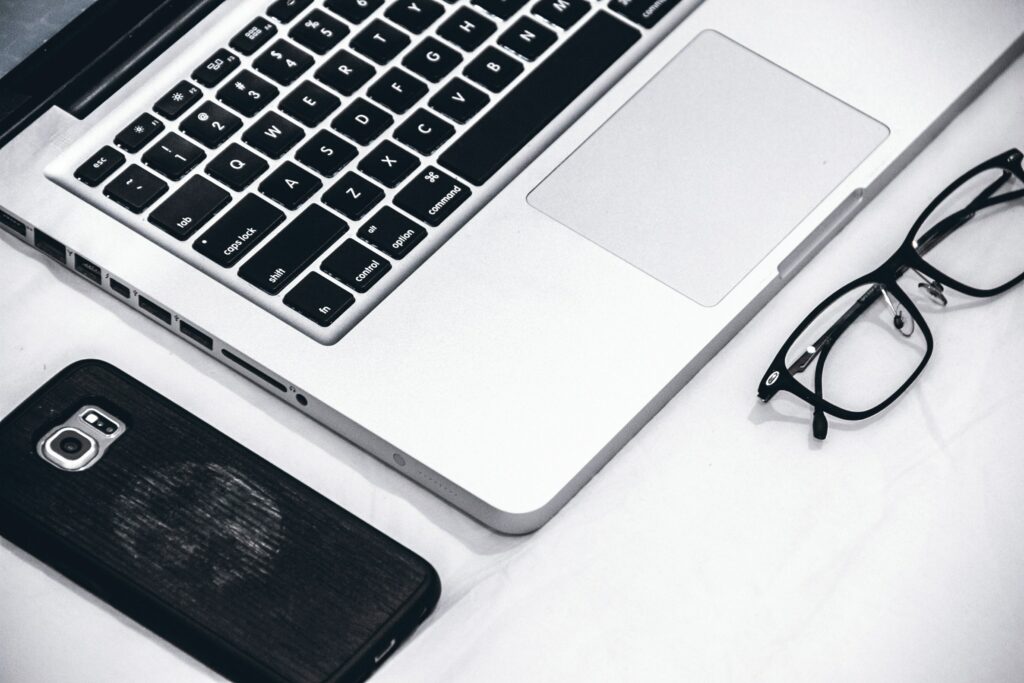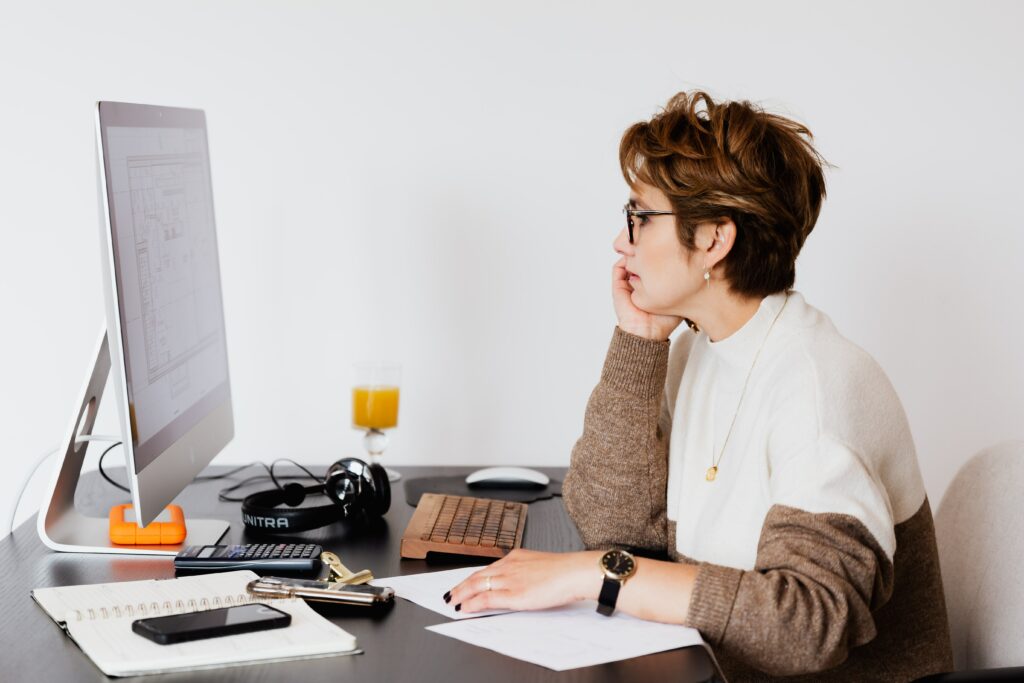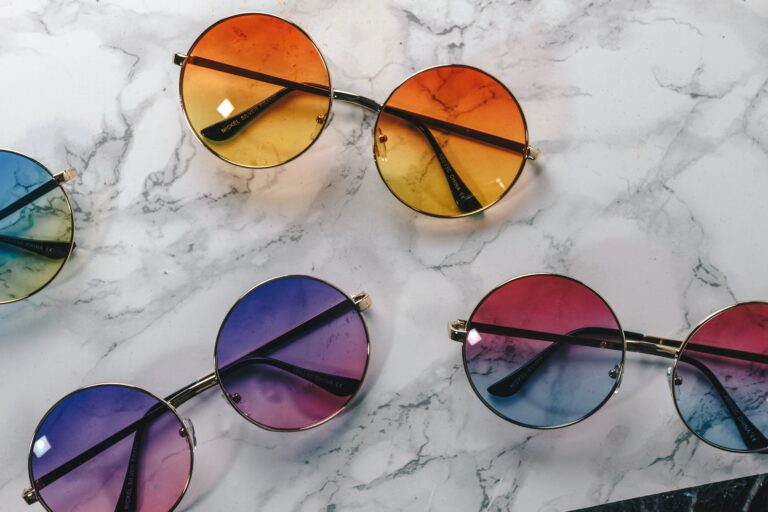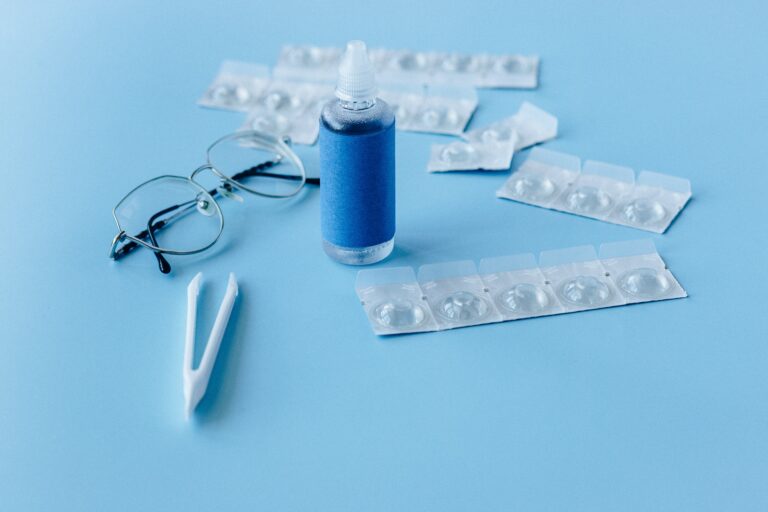Do Blue Light Glasses Work?
With the popularization of digital screens, more and more adults and teenagers are tired of eyestrain and other eye problems. Some are puzzled by dry eyes and eye fatigue, while others are sick of eye redness and itching. Thus, many people wear blue light glasses to avoid digital harm from screens such as computers, ipads and mobile phones. A question is raised naturally: do blue glasses work? Now Alamode give you the answer.
In comparison to other colors in the visible spectrum, blue light has a shorter wavelength and more energy. High-energy visible (HEV) light is another name for it. Sunlight contains blue light, which is essential for regulating our circadian rhythm, which in turn helps to control our sleep-wake cycle.
Electronic gadgets like computer screens, mobile phones, and tablets also emit blue light. Long-term exposure to this artificial blue light, especially at night, has been linked to a variety of health problems including headaches, eye strain, and fatigue. Blue light glasses have grown in popularity as a result as a way to filter out blue light from electronics and lessen its adverse effects.

What are blue light glasses?
A form of eyewear called blue light spectacles is intended to filter out or prevent blue light from electrical devices like computer displays, cell phones, and iPads. Blue light is reflected or absorbed by a unique coating applied to the lenses of blue light spectacles, preventing it from entering the eye.
There are many different designs of blue light spectacles, both with and without prescriptions. They can have tinted lenses with a golden, amber, or orange color or transparent lenses. Additionally, some versions have an anti-reflective coating to lessen glare and enhance visibility.
Benefits of Blue Light Glasses
l Higher-quality sleep: Blue light exposure at night can disrupt our bodies’ normal sleep-wake cycle, making it more difficult to get to sleep and remain asleep. Blue light-blocking glasses may contribute to improved sleep and rest by preventing blue light.
l Reduced eye fatigue and eye strain: Long-term use of electronic displays can result in digital eye strain, which can cause symptoms like headaches, dry eyes, and blurred vision. Blue light-blocking eyewear may assist in easing these symptoms by lowering the amount of blue light that enters the eyes, which also lessens eye strain and fatigue.
l Prevention of digital eye strain: Blue light spectacles may also aid in the prevention of digital eye strain, a disease that can develop after the extended use of digital devices. Symptoms of this disease include blurred eyesight, dry eyes, headaches, and eye fatigue.
l Macular degeneration prevention: Macular degeneration is a severe eye disease that can cause vision loss. Blue light exposure has been linked to an increased risk of the condition over time. Blue light glasses may help lower the chance of developing this condition because they filter out blue light.
l Prevention of headaches and migraines: Exposure to blue light has been associated with a higher risk of headaches and migraines, especially in people who are light-sensitive. Blue light spectacles may lessen the frequency and intensity of these types of headaches by filtering out blue light.
Research Studies
The effectiveness of blue light glasses in lessening the harmful effects of blue light exposure has been the subject of numerous research studies. Here are a few illustrations:
l According to a 2019 research that appeared in the Journal of Adolescent Health, a group of adolescent students’ mood and sleep quality significantly improved when they wore blue light-blocking glasses for three hours before bed. According to the research, blue light glasses could be a useful tool for helping adolescents sleep better.
l According to a 2017 research in the Journal of Ophthalmology, wearing blue light-blocking eyewear helped university students who sat in front of computers for extended periods of time lessen their symptoms of digital eye strain. According to the research, wearing blue light glasses can help people who frequently use electronic devices avoid eye fatigue and strain.
l Wearing blue light-blocking glasses for two hours prior to bedtime improved sleep quality and decreased symptoms of insomnia in a group of insomniac patients, according to research published in the Journal of Clinical Sleep Medicine in 2021. According to the research, it could be a useful tool for helping people with insomnia get better sleep.
While these studies indicate that this kind of glasses may be helpful in reducing the negative effects of blue light exposure, more study is required to completely understand their effectiveness as well as the long-term impacts of blue light exposure on our health. It’s also worth noting that not all blue light glasses are made equal, and their efficacy may differ based on variables such as lens quality, frame style, and individual needs.it
How to choose the right Blue Light Glasses?
Choosing the right blue light glasses can be a daunting task, but here are a few factors to consider:
l Type of Blue Light Glasses: There are two different kinds of blue light spectacles: ones with transparent lenses and ones with yellow lenses. For use at night or in poorly lit areas, yellow glasses filter out more blue light. Clear lenses are preferable for daytime use because they don’t affect how colors are perceived.
l Lens Quality: Look for eyeglasses with high-quality lenses that are clear, anti-reflective, and scratch-resistant. You can use your digital gadgets with complete clarity thanks to these features.
l Frame Style and Fit: Select a frame design that complements your face shape and personal style. Make sure the glasses are comfortable to wear for long amounts of time and that they fit properly.
l Brand Reputation: Choose a reputable brand that has a proven track record of producing high-quality blue light glasses. Look for customer reviews and ratings to get an idea of the brand’s reputation.
l Prescription vs. Non-Prescription: If you wear prescription glasses, consider getting blue light glasses with prescription lenses. This will ensure that you have the correct lens power for your eyes and reduce eye strain.
Ultimately, the best way to choose the right glasses is to try on different pairs and see which ones feel the most comfortable and provide the most benefit for your specific needs.

How to avoid eyestrain
Except for wearing a pair of blue light glasses, the AAO recommends the following tips for avoiding eyestrain:
l Stay around an arm’s length, or 25 inches, away from screens.
l Look slightly downwards at the screen.
l Use the 20-20-20 rule, which involves looking away from the screen to an object at least 20 feet away for 20 seconds every 20 minutes, to give the eyes a break.
l Use artificial tears to add moisture if the eyes feel dry.
l Adjust the lighting in a room and the contrast levels of the screen to make it comfortable to look at.
l Use a matte screen filter if needed.
l Wear glasses when using a screen, if an optometrist or ophthalmologist has prescribed them.
Summary
Blue light is produced by electronics like computers, TVs, phones, and iPads. Even with prolonged exposure, the blue light they produce might not be enough to harm eyes or vision. Blue light glasses are to protect our eyes from the harmful effects of blue light and improve our overall visual comfort while using electronic devices. Purchasing blue light glasses, preventing computer vision syndrome (CVS) or digital eyestrain soon.






